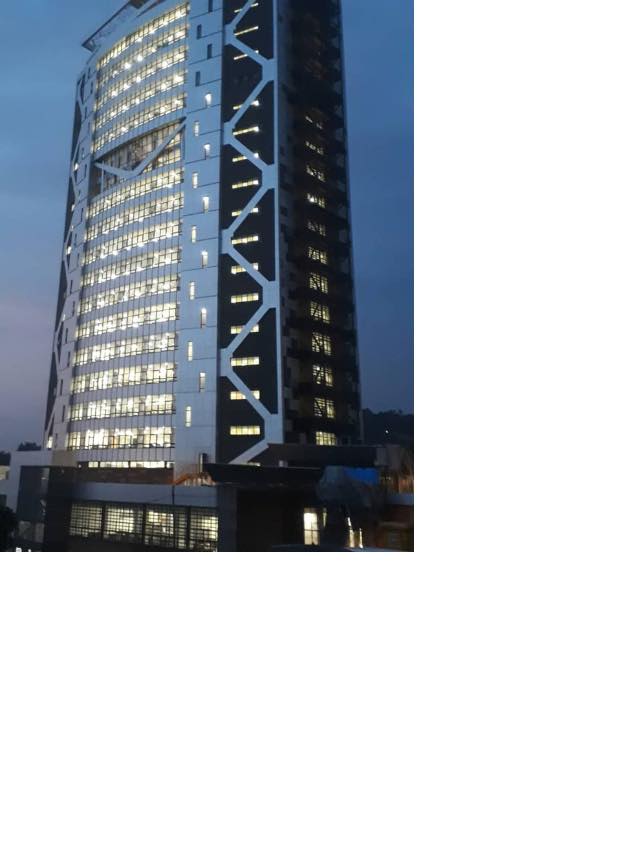By Denis Jjuuko
Over the weekend, several senior managers at the Uganda Revenue Authority (URA) tendered in their resignations ostensibly to pursue other careers. Social media as is usually the case went overboard with some people claiming it was a purge that the officers didn’t choose to resign rather forced to do so.
URA issued a statement saying the board made recommendations concerning the “reorganization and management” but “some senior officials chose to resign and the board accepted their resignation.” There is nothing new in mass resignations in organisations following an appointment of a new boss.
However, what concerned me was the statement, which talked about “reorganization and management of URA” though my concern isn’t merely in the personnel, those can always be replaced. The way URA works is what needs to change and I hope the “reorganization and management” will consider small and medium enterprises (SMEs).

There is a need to change or push to change the many taxes that end up strangling small businesses. The income tax rate is at 30%, excise duty at 15%, withholding tax at 6% and VAT at 18%. All these taxes may be fine for large organisations, but for small companies, they are a death sentence. So imagine a company that gets a Shs100m contract, runs to the bank to get a loan to execute the assignment and the loan is granted at 24%. If they pay all those taxes and the interest fee, what do they remain with?
But before the company even gets a contract, it must submit a tax clearance certificate (TCC). Some years ago, URA people sat in a boardroom and came up with an ingenious idea —TCC must be issued per a bid. So if you are bidding for work in Company A today, you apply for a TCC that goes to Company A and if tomorrow you need to make another bid to Company B, you apply for another TCC. Never mind that you just got a TCC a day before. The funny thing is that today URA can issue you a TCC and tomorrow they can reject to give you one. I don’t know what makes URA issue a TCC today and refuse to issue another tomorrow.
This process of applying a TCC per bid is another cost for SMEs because many rely on external consultants to process these certificates for them. Why doesn’t URA issue a TCC for say six months or one year? If they fear that SMEs will forge them, they can a create verification system. If people can quickly verify in whose name is a vehicle registered at URA, why can’t they verify whether a TCC is genuine or not?
Taxes like VAT should also be reformed where SMEs don’t have to pay URA once an invoice is issued rather when they have been paid. I know there is an option for this but its administration is even more complicated than paying URA before a company is paid because you must have paid all your VAT before you allowed this option. Where does an SME get the money to pay taxes for money it is not sure will be paid on top of servicing loans at crazy rates?
URA sometime back introduced a very good system where some types of businesses are charged a set rate as income tax. They call it a presumptive tax. Businesses like salons pay this rate instead of self-assessments. The figure payable is set regardless of the profit made. I think this is a very good way of taxing SMEs. However, they left out many businesses that could pay more taxes if they were asked to pay a fixed rate. Self-assessments are cumbersome to both the small taxpayers and URA. The URA needs many staff to look at documents before they accept that the self-assessment is correct. Many times, URA refuses self-assessments and institutes charges that are way above what an SME made in a year. That involves a lot of back and forth before the tax is paid if ever paid. There is a need to widen businesses that pay a presumptive tax rate but also consider the size of business. The other alternative is to have an income limit where, for example, if the business earns less than a certain amount a year is allowed to pay a presumptive tax than going through the cumbersome processes of self-assessment. This will reduce the number of companies filing zero profits and therefore paying nothing in income tax.
Also, URA needs to handle SMEs differently. For example, the assessment forms for Withholding Tax exemptions shouldn’t be the same for all taxpayers. A simple form for a small business is sufficient whereas, for the largest taxpayers, they can have a form that fits their size.
As URA was issuing statements about its staff resignations, MTN was issuing another regarding a tax case involving Shs326 billion which the telecom giant questioned in court. The assessment came to Shs24 billion but MTN further appealed to the Tax Appeals Tribunal. To cut the long story short, MTN got an interim order against the enforcement of URA notices. MTN as a large company can afford silver-tongued lawyers and appeal even for 20 years but SMEs can’t. A mere lack of a TCC is a disqualification from a potential contract. Excessive assessments from URA simply lead to heart attacks for the owners and closure of the business. URA enforcement officers also love small companies — they quickly attach bank accounts, put padlocks on the premises and such other things. For the big boys, they simply sit on the table or go to court.
Changes at URA, therefore, shouldn’t stop at just personnel but the way tax administration is carried out especially for SMEs because they are the majority and employ more people collectively. Customer care is critical if URA is to achieve its tax targets and SMEs can play a critical role if URA invested time and resources to understand them and address their challenges.
The writer is a communication and visibility consultant. djjuuko@gmail.com










